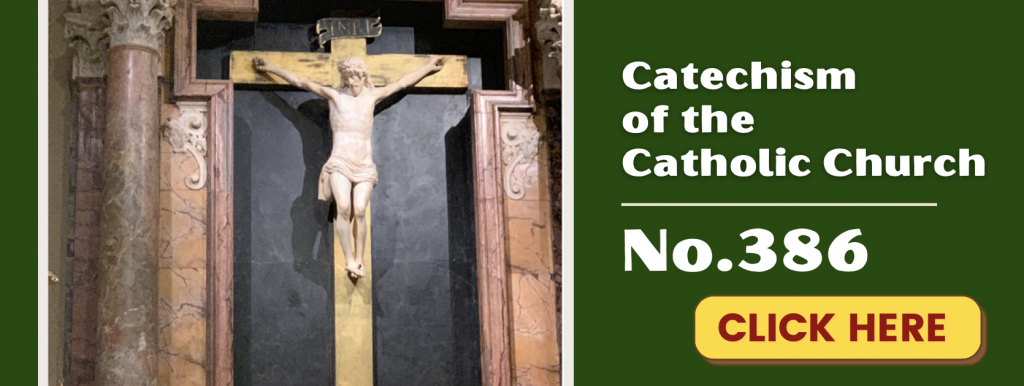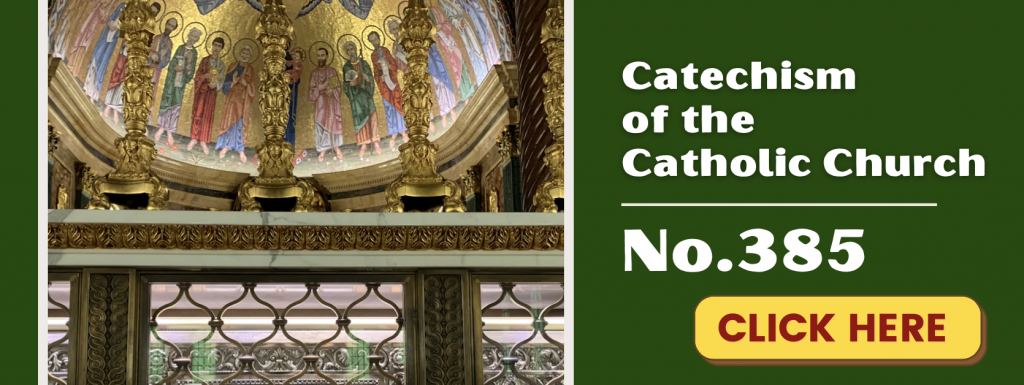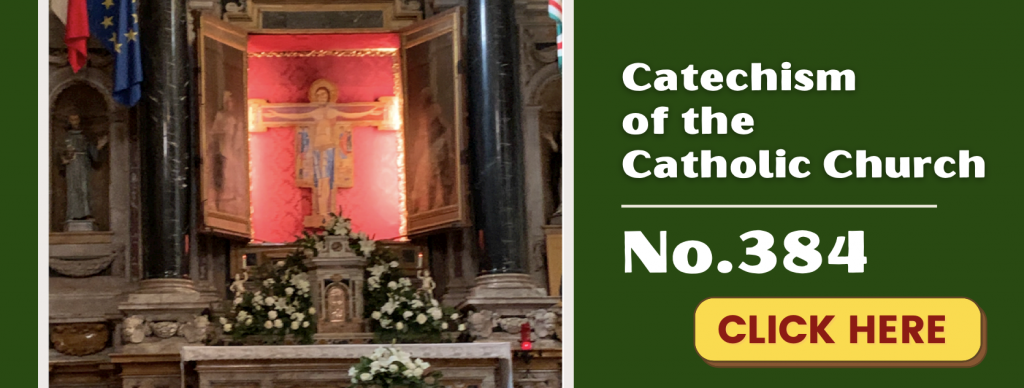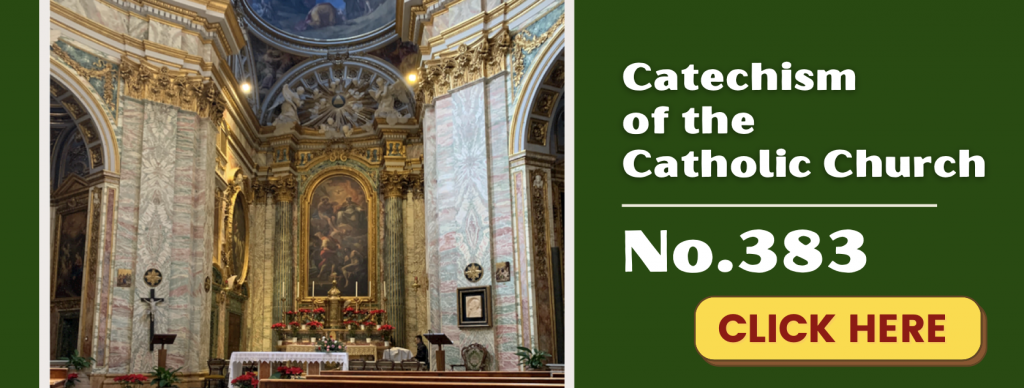Friday of the Twelfth Week in Ordinary Time

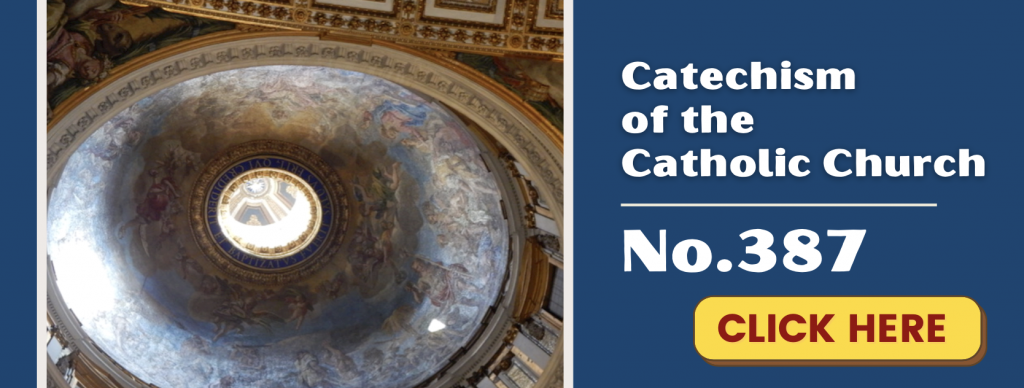

“For greater things you were born.” (Ven. Mother Luisita)
FRIDAY, June 25th Mt. 8: 1-4 “And then a leper approached, did him homage, and said, ‘Lord, if you wish, you can make me clean.’ He stretched out his hand, touched him, and said, ‘I will do it. Be made clean.’ His leprosy was cleansed immediately.”
- Leprosy of the body untreated is a great tragedy and human suffering that can lead to death! However, there is something far worse. Leprosy of the soul, which is sin, untreated can lead to eternal death – forever and ever and ever!
- “Praise be to the God and Father of our Lord Jesus Christ, the Father of compassion and the God of all comfort, who comforts us in all our troubles, so that we can comfort those in any trouble with the comfort we ourselves receive from God. (2 Cor 1:3-5)
- From the comfort and new life that we receive in every Sacramental Confession, we are to bring others to Confession to share in this comfort and new life! That is what Jesus commands of us!
GOD’S MERCY SETS OUR HEARTS FREE! BECOME AN APOSTLE OF CONFESSION! by Fr. Ed Broom, OMV
“I absolve you of your sins; go in peace!” These are among the most consoling words that the human ear can hear and that the heart can experience. Yes, these are the words expressed by the priest, who represents Jesus the Physician and Healer, at the conclusion of the Sacrament of Mercy, that we commonly title the Sacrament of Confession.
To know in the depths of your heart that you have been forgiven of all of your sins and that your guilt evaporates into thin air can be one of the most ennobling and uplifting experiences that a human person can relish!
Therefore, let us take advantage of the extraordinary treasure-house of graces that God has in store for us, as well as the whole world. God’s arms are open to love, forgive and embrace, as we read in the Parable of the Prodigal Son or maybe we could say The Parable of the Merciful Father; however, we must freely accept and receive this cordial invitation. Jesus says, “Come to me all of you who are weary and find life burdensome and I will give you rest.” (Mt. 11:28-30)
This short essay has as its essential thrust for you to become an Apostle of God’s Mercy, to be an Apostle of the Sacrament of Confession. This means in concrete, what are some of the tools or means that I can utilize to bring back some Prodigal sons and daughters, the confused, depressed and disoriented back to the loving arms of the Father through a good Sacramental Confession.
Maybe you’re one of the prodigal sons and daughters! Maybe because of COVID and difficulty finding a confessor, you got out of the habit of going to Confession! Ven. Bruno Lanteri, Founder of the Oblates of the Virgin Mary, says BEGIN AGAIN!
We will offer ten simple, concrete, and valuable suggestions to help these many wandering souls to experience the Infinite Mercy our loving Savior has for each and every one of us.
1. OUR PERSONAL EXAMPLE.
The saying is so true: “You cannot give what you don’t have.” For you to preach something to others, you first have to put it into practice yourself. That means that if you want to bring some wandering soul back to the Sacrament of God’s Mercy, then you should be in the habit of making good, frequent and well-prepared confessions yourself. Let your light shine on others! If you got out of the habit, BEGIN AGAIN!
2. THE PARABLE OF THE PRODIGAL SON.
In your own words, paraphrase and explain one of the greatest stories of the Greatest Teacher, Our Lord and Savior Jesus Christ. In your explanation to this possibly fearful, confused, and doubting person, focus on the love, compassion, mercy, goodness, kindness, and patience of the Prodigal Son’s Father, who really represents and symbolizes God the Father. Then invite this wandering soul to read and meditate on the passage of the Parable of the Prodigal Son in Scripture. This can be found in the Gospel of Luke, Chapter 15:11-32.
3A. EXAMINATION OF CONSCIENCE.
Be prepared to be a “good shepherd” to this wandering sheep. Possibly this wandering soul has not been to Confession for a long time, maybe years, and does not have a well-formed conscience. Most likely their conscience is malformed, suppressed, lax, or simply in a state of dormition. Therefore, a well-written Examination of Conscience booklet on the Ten Commandments can be of priceless value. Take the initiative on your part to purchase one and give it to them as a free gift. A good and inexpensive one is “An Examination of Conscience” booklet by Fr. Robert Altier, available on-line at Leaflet Missal Company.
3B. WRITTEN FORM.
Furthermore, it is of great importance to encourage the wandering sheep to prepare to make a good confession, possibly after many years, by writing out their sins; for mortal sins, specify the kind of sin and the number of times the sin was committed. If they cannot remember the exact number of times, they can say a quick prayer to the Holy Spirit for help, then give their best estimated number.
4. THE FIVE STEPS OF CONFESSION.
It is good to review the 5 Steps of a Good Confession. 1) Examine your conscience. 2) Have sorrow for your sins. 3) Confess your sins to the priest. For mortal sins only, include the kind of sin and number of times the sin was committed. 4) Resolve to amend your life. 5) After your confession, carry out the penance the priest gives you as soon as possible.
5. HIGHLIGHT THE EXTRAORDINARY GRACES RECEIVED.
In encouraging the Prodigal Son/Daughter, focus primarily on the positive. Pope Francis insists that the Confessional should not be a torture chamber. By the positive we mean, highlight the extraordinary graces and blessings that flow from a good Sacramental Confession. Among the many graces are the following.
- A good confession restores sanctifying grace to our soul which means our Friendship with the Father, Son and Holy Spirit is restored.
- Once again we have Jesus as our Best Friend!
- We experience a peace the world cannot give—peace of heart, mind, body, and soul.
- Sin saddens us. Forgiveness of our sins produces great joy in our heart and soul.
- We experience inner harmony. Sin causes division within us and with others! Confession and reconciliation with God produces abundant fruits of harmony.
- A pure conscience. Living with a guilty or dirty conscience can indeed be hell on earth. A good confession gives us a pure, clean conscience. What a great relief! For that reason Shakespeare asserts: “Conscience does make cowards of all of us.”
- When we are living in sin, we live in perpetual insecurity and a paralyzing fear. With a good Confession, God once again becomes our rock, our fortress, and our firm foundation. “The Lord is my Shepherd; there is nothing I shall want.” (Ps. 23)
- Reception of Holy Communion. One of the greatest graces that flows from a good confession is a return to the Sacramental life in which, once again, we can receive the greatest of all Gifts: Jesus, the Bread of Life in Holy Communion. (Jn. 6:22-71—The Bread of Life discourse)
6. CONFESSION: WHERE, WHEN, HOW?
These nuts and bolts about where, when and how to make a confession can be key in bringing a wandering sheep back to the fold. Tell them where the confessions are held, when they are scheduled, and of great importance how the confession is to be done—the actual protocol or technique that is used in the confessional.
Outline the protocol: Enter the confessional and close the door behind you. Be the first one to speak, so the priest knows what language to use.
- Make the sign of the cross. “Bless me, Father, for I have sinned, my last confession was…” (Say how long ago: for example 5 months or 5 years, etc.)
- “These are my sins!” Say your sins or read aloud the list of your sins so you don’t forget anything. Mortal sins have to be confessed by kind and number.
- Say the Act of Contrition.
Do not be surprised if this wandering, but returning sheep of the flock does not know the Act of Contrition. Offer to give them a copy of an Act of Contrition before they go to Confession. Maybe even on a laminated card that they can keep and reuse.
All of these practical and personal helps can be of extraordinary value and utility in helping this lost sheep to experience the Infinite Mercy of the Sacred Heart of Jesus.
7. ACCOMPANY THEM TO THE CHURCH FOR CONFESSION.
One more step would be to simply bring this prodigal son/daughter to the Church, and then to the Confessional where the priest is actually hearing confessions. Be with your friend!
Briefly outline the protocol again: Enter and close the door, Sign of the Cross; then the words: “Bless me, Father, for I have sinned, my last confession was_____(weeks, months,years) ago; these are my sins!” Bring an extra Act of Contrition with you, in case they forgot theirs.
While they are in the confessional, pray for them, as well as for the priest-confessor!!!
8. A GENERAL CONFESSION AND IGNATIAN SPIRITUALITY.
Eventually, it is highly recommended that a General Confession of all the sins of one’s life be made. After his conversion in the Sanctuary of Montserrat, Saint Ignatius of Loyola made a General Confession of all the sins of his life. From that moment on, God inundated Ignatius with a deluge of graces. Once we have totally purified the interior vessel of our soul, then God can take us and use us to carry out extraordinary apostolic works for the salvation of immortal souls for all eternity! Jesus said: “Blessed are the pure of heart, they will see God.” (Mt. 5:8)
9. READ THE LIVES OF SAINTLY CONFESSORS.
A very salutary practice is that of reading the lives of the saints; they serve as powerful intercessors for us before the throne of God, as well as brilliant stars in the firmament of heaven for us to emulate. Highly to be recommended are the following: Saint John Marie Vianney (known as the Cure of Ars); Saint John Bosco, the patron of the young who was a zealous confessor; Saint Padre Pio, who spent many hours in the confessional reconciling souls to God; and Saint Alphonsus Liguori, patron of confessors and moral theologians and the founder of the Redemptorists. When we read the lives of these saintly and zealous confessors, they ignite in our hearts, minds and souls a desire to approach the Sacrament of Confession with greater trust and confidence, and with greater frequency!
10. PRAY AND PLACE ON THE ALTAR.
In your initiative to be an ardent and zealous Apostle of Confession, never underestimate the power of prayer, which indeed can move the highest mountains if we have the faith of the mustard seed. By far the greatest prayer under the heavens, that unites both heaven and earth and even Purgatory, is the Holy Sacrifice of the Mass!
Place the individuals that you plan to bring back to the Sacrament of Confession on the altar in the Holy Sacrifice of the Mass; then receive and offer your Holy Communion that the Precious Blood of Jesus will touch their heart and move this lost sheep with the desire to return to God’s merciful and loving embrace through the Sacrament of Confession. Once this wandering sheep has returned to the fold by making a sacramental confession, then place them on the altar again, praying that they will persevere in pursuing the frequent practice of receiving God’s Mercy through Confession.
May Our Lady, whom we invoke with the title: “Hail Holy Queen, Mother of mercy”, attain for us the grace to be a true and ardent apostle of God’s Mercy by pursuing and bringing back the lost sheep to the loving embrace of Jesus the Good Shepherd, so that they may hear those beautiful, inspiring and consoling words:
“And I absolve you of your sins: in the name of the Father, and of the Son and of the Holy Spirit.

